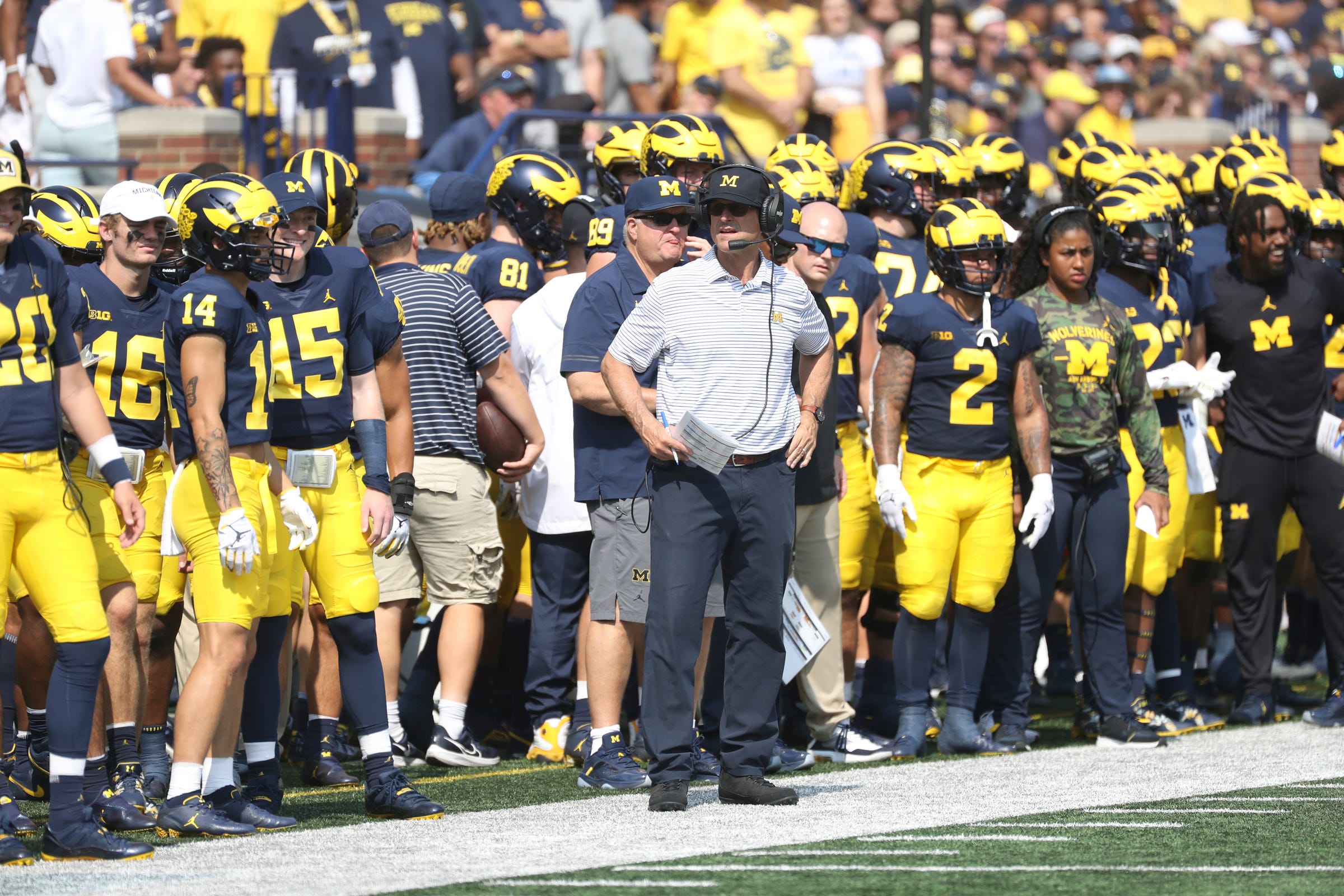The University of Michigan’s football program faces mounting scrutiny as fans express deep concerns over integrity and ethics following a scandal involving alleged rule violations. Longtime supporters of the team are voicing their frustrations, emphasizing the importance of values over mere victories.
In a recent letter to the editor, Ann-Nora Hirami, a Michigan alumnus and 35-year season ticket holder, highlighted several key issues surrounding the program. She criticized Jim Harbaugh, the head coach, for refusing to participate in an NCAA investigation, failing to provide necessary records, and the actions of Connor Stalions, who reportedly destroyed evidence linked to the scandal. Hirami voiced her dismay, stating, “I care about the university far more than football. Football is not the almighty.”
The scandal has not only raised questions about the integrity of the football program but also about the accountability of its leadership. Many alumni, including Hirami, are calling for a stronger ethical framework within the university. They argue that the success of the football team should not overshadow the academic values the institution stands for.
Hirami’s sentiments are echoed by others, such as Donald Wade from Nashville, Tennessee, who questioned whether the University of Michigan has a robust code of ethics for its staff. Wade suggested that Harbaugh should bear some responsibility for the fines imposed on the university as a result of the scandal. He remarked, “Harbaugh should be responsible for a portion of the fines based on not following the school’s ethics code.”
Calls for Change in Leadership
The recent events have placed additional pressure on the university’s administration and coaching staff. Alumni and fans alike are looking towards Sherrone Moore, the current offensive coordinator, to step up and restore integrity within the program. Many view this as a pivotal moment for Moore, who has the opportunity to lead the team into a new era defined by accountability and ethical conduct.
With the football season approaching, fans are eager to see whether the coaching staff will address these concerns and implement changes that prioritize integrity. As Hirami stated, “We have every right to expect a lot from the coaches and the team, not only victories.”
Addressing Broader Issues of Violence and Community Safety
In addition to the controversy surrounding Michigan football, other letters to the editor have focused on pressing social issues, including violence and community safety. Darryle J. Buchanan, a resident of Southfield, pointed out the alarming levels of violence affecting neighborhoods, particularly in cities like Detroit. He attributed much of this violence to societal expectations surrounding masculinity, emphasizing the need for mentorship and prevention programs to foster healthier models of manhood.
Furthermore, Bill Richardson, also from Michigan, condemned the approach of treating crime as a battlefield, suggesting that sending in the National Guard does not address the root causes of violence. He argued for the implementation of common-sense gun laws and community investment to create lasting safety.
As the fallout from the Michigan football scandal continues, it is clear that the conversations surrounding integrity, accountability, and community values extend beyond the football field. Fans and community members alike are calling for a renewed focus on what truly matters: the integrity of the university and the well-being of its community.





































































